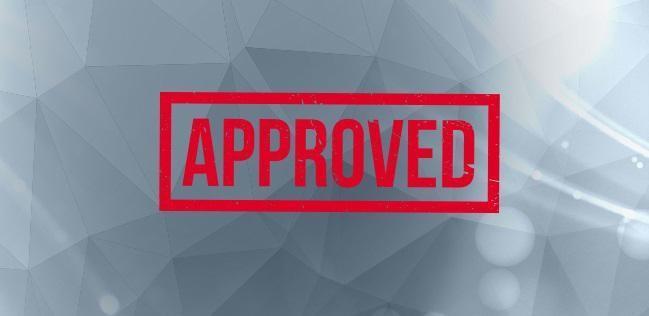FDA Approves Paradise Renal Denervation System: What Comes Next?
(UPDATED) This marks the culmination of more than a decade of work, but there are still questions about where the field goes from here.

The US Food and Drug Administration has approved the ultrasound-based Paradise renal denervation system for the treatment of hypertension, marking the culmination of more than a decade of work—with many ups and downs—to bring the technology to US physicians, device maker Recor Medical and its parent company Otsuka Medical Devices announced Tuesday.
Denervation is meant to be used as an adjunctive therapy when lifestyle modification and medications fail to control a patient’s blood pressure, the companies note in a press release.
The approval was anticipated following a favorable review from an FDA advisory committee in August supported by positive results from three sham-controlled trials, including two in patients with mild-moderate hypertension on a background of no antihypertensive medications (RADIANCE II and RADIANCE-HTN SOLO) and one in patients with resistant hypertension on a background of three drugs in a single combination pill (RADIANCE-HTN TRIO). Pooled results from those trials presented at the recent TCT 2023 meeting showed that a “modest” BP-lowering effect remained 6 months after the procedure after accounting for medication changes in both arms after the 2-month assessment of the primary endpoints.
Physicians reacted to news of the approval on X (formerly Twitter), with Martha Gulati, MD (Cedars-Sinai Medical Center, Los Angeles, CA), saying, “We were waiting for this! Let’s see how it translates in practice. And how it is reimbursed. And if we can just be more aggressive about treating BP to goal using all our tools.”
But not everyone is sold on renal denervation. Sanjay Kaul, MD (Cedars-Sinai Medical Center), noted on X the unclear durability of BP-lowering, the lack of a procedural marker of successful denervation, the difficulty of identifying patients who will respond to treatment, and the lack of data on the intervention’s impact on clinical outcomes, quality of life, patient-reported outcomes, and cost-effectiveness. “And yet approval for [a] potentially broad swath of patients,” he said.
There is no word yet on what the FDA will decide regarding Medtronic’s Symplicity Spyral renal denervation system, which received a less favorable review in front of the advisory committee.
Looking Ahead
Some of these issues also were brought up when experts met at an FDA Town Hall session during the TCT meeting 2 weeks ago, ahead of the agency’s decision, to consider how the field will evolve in the coming years. Speakers and panelists offered trialist, industry, and clinician perspectives, most in agreement that renal denervation is an intervention proven to safely lower blood pressure across the spectrum of hypertension, with or without background antihypertensive drug therapy.
But one of the big takeaways is that medication use remains the most important confounding factor that needs to be addressed when conducting future renal denervation studies, according to Felix Mahfoud, MD (Saarland University Hospital, Germany), a long-time trialist in this space.
Trials conducted in patients with mild or moderate hypertension who were not taking any background medications for a period of time isolated the effect of denervation, while studies that included patients with resistant hypertension incorporated standardized medication regimens with fixed-dose combinations to minimize variability in treatment, he noted. And all of the recent trials tested plasma and urine to make sure patients were sticking with prescribed treatments.
He underscored the importance of standardizing medication use by showing how differential drug use between the two arms caused a few studies—including SPYRAL HTN-ON MED with the Symplicity Spyral system using radiofrequency energy and REQUIRE with the Paradise system—to miss their primary endpoints. Learning from the past, said Mahfoud, key features of high-quality studies include a sham control; involvement of multiple centers; adequate blinding of patients and outcome assessors; ambulatory BP as the primary outcome; completion of the study as planned with outcome data available for all or nearly all randomized participants; and use of newer systems and revised procedural techniques.
Presenting the clinician perspective at TCT, Naomi Fisher, MD (Brigham and Women’s Hospital, Boston, MA), said one of the most-painful lessons that’s been learned is how difficult it is to overcome the skepticism about renal denervation that has become entrenched over the past decade. But there has also been knowledge gained, she said, about the power of placebo, about how patient behavior changes in response to being observed (the Hawthorne effect), about the importance of avoiding measurement bias and eliminating variability in technique, about conducting appropriately designed studies, and about medication adherence and the large impact combination therapy can have.
“From all of that we have had a very rigorous resurgence of our trials in renal denervation such that we really can trust the data,” Fisher said.
What’s still lacking, however, are measures of procedural efficacy during denervation, factors predictive of who will respond to the intervention, incorporation of patient preference and patient-reported outcome measures into trials, and research into how denervation works in specific patient subsets, including those with isolated systolic hypertension, diabetes, and chronic kidney disease or groups that have been underrepresented in trials thus far, like women and those from racial/ethnic minority groups, Fisher said.
Additional research is needed into the durability of renal denervation’s effects and the impact on cardiovascular outcomes, she noted.
Denervation Trials of the Future
Eric Secemsky, MD (Beth Israel Deaconess Medical Center, Boston, MA), also speaking during the TCT session, had some suggestions for future trials of renal denervation in a postapproval landscape. One of the big questions moving forward is whether sham controls will be needed in new trials of denervation and whether it would be ethical to randomize patients to not undergo a procedure that has been approved by the FDA, he said.
If not sham-controlled trials, then future studies would either be noninferiority trials comparing a new denervation system with an established one, or single-arm studies comparing new systems with a performance goal based on historical data, he suggested. The advantage of the noninferiority design is that it uses an approved device as the control and provides clinicians with additional information about how to use the devices in practice. “This is what I imagine that we move to,” Secemsky predicted. “It’ll provide an ethical way to randomize efficiently for patients who are potentially candidates for [renal denervation], and I don’t think it really slights us at all in terms of lacking an active sham-control arm.”
Once the design is worked out, then the appropriate endpoint would have to be chosen, with questions arising about whether BP measures measured at home, in the office, or on ambulatory monitoring are best.
Is an Outcomes Trial Needed?
What might be needed to settle the renal denervation efficacy question in the minds of many is an outcomes trial. At TCT, Ajay Kirtane, MD (NewYork-Presbyterian/Columbia University Irving Medical Center, New York, NY), discussed the design and statistical power required to detect an impact on hard clinical endpoints amid existing evidence supporting an impact on blood pressure, which strongly correlates with adverse outcomes like stroke.
Already, said Kirtane, the evidence established for renal denervation, “is basically the highest level of evidence-based trial design established for cardiovascular devices with a clearly established surrogate.”
But is that enough? “Not right now, but we will need clinical outcomes data from renal denervation,” Kirtane predicted. “From the standpoint of patients and clinicians, these are irreversible procedures and are more invasive than medications and no matter how much they might prefer them, we need to get a little bit more data than that for many patients to be convinced.”
Given the high prevalence of hypertension and the fact that some antihypertensive medications have been shown to have harmful off-target effects, the field can’t afford to get this wrong, he said. In addition, the potential costs of delivering renal denervation for hypertension could be huge, and payers will be more likely to reimburse the procedure if there is trial evidence supporting improvement in clinical outcomes and not just a reduction in blood pressure, he indicated.
And having proof from RCTs that renal denervation improves cardiovascular outcomes would provide the evidence needed to refute any possible future concerns that might emerge from observational studies. “Given how far we’ve come, we can’t just stop,” said Kirtane. “We can’t halt the integrity of our scientific inquiry or compromise in the rigor of future studies, which would be additionally definitive in this space.”
TCT panelist Horst Sievert, MD (CardioVascular Center Frankfurt, Germany), pointed out that renal denervation has not been taking off in Germany and elsewhere despite the positive clinical trials. Acceptance in practice by patients and referring clinicians is low because of the modest size of the BP reductions (on average, about 5 to 7 mm Hg compared with sham) and the fact that it is an invasive and irreversible procedure, he said.
A trial showing a significant impact on adverse outcomes would help increase uptake, Sievert indicated. “You can move this field forward by changing that mindset, but it will be difficult without an outcome trial.”
The Paradise system had already received CE Mark approval in Europe in 2012, and it has seen some clinical use there. Recor Medical has started Global Paradise System Registry in Europe, with plans to expand it internationally.
Todd Neale is the Associate News Editor for TCTMD and a Senior Medical Journalist. He got his start in journalism at …
Read Full BioSources
Recor Medical. Recor Medical and Otsuka Medical Devices announce first FDA-approved renal denervation system for the treatment of hypertension. Published on: November 7, 2023. Accessed on: November 8, 2023.
Multiple presentations. Presented at: TCT 2023. October 24, 2023. San Francisco, CA.
Disclosures
- Mahfoud reports grant support/research contracts and consulting fees/honoraria/speaking fees from Medtronic and Recor Medical.
- Fisher reports grant support/research contracts from Recor Medical and consulting fees/honoraria/speaking fees from Recor Medical, Medtronic, AstraZeneca, and Aktiia.
- Secemsky reports grant support/research contracts from AstraZeneca, Cook Medical, Bard Medical, and Medtronic and consulting fees/honoraria/speaking fees from Medtronic, CSI, Bard Medical, Janssen, Cook Medical, and Philips.
- Kirtane reports institutional funding (including research grants and fees for consulting and/or speaking) to Columbia University and/or the Cardiovascular Research Foundation from Medtronic, Boston Scientific, Abbott Vascular, Abiomed, CSI, CathWorks, Siemens, Philips, and Recor Medical; consulting fees from Neurotronic; and travel expenses/meals from Medtronic, Boston Scientific, Abbott Vascular, Abiomed, CSI, CathWorks, Siemens, Philips, Recor Medical, Chiesi, Opsens, Zoll, and Regeneron.
- Sievert reports study honoraria to his institution, travel expenses, and consulting fees from 4tech Cardio, Abbott, Ablative Solutions, Adona Medical, Akura Medical, Ancora Heart, Append Medical, Axon, Bavaria Medizin Technologie GmbH, Bioventrix, Boston Scientific, Cardiac Dimensions, Cardiac Success, Cardimed, Cardionovum, Celonova, Contego, Cor, Hangzhou Nuomao Medtech, Holistick Medical, Intershunt, Intervene, K2, Laminar, Lifetech, Magenta, Maquet Getinge Group, Metavention, Mitralix, Mokita, Neurotronic, NXT Biomedical, Occlutech, Recor Medical, Renal Guard, Shifamed, Terumo, Trisol, and Vascular Dynamics. He says relationships with industry are limited to reimbursement for clinical trials, and personal honoraria have not been paid.





Comments